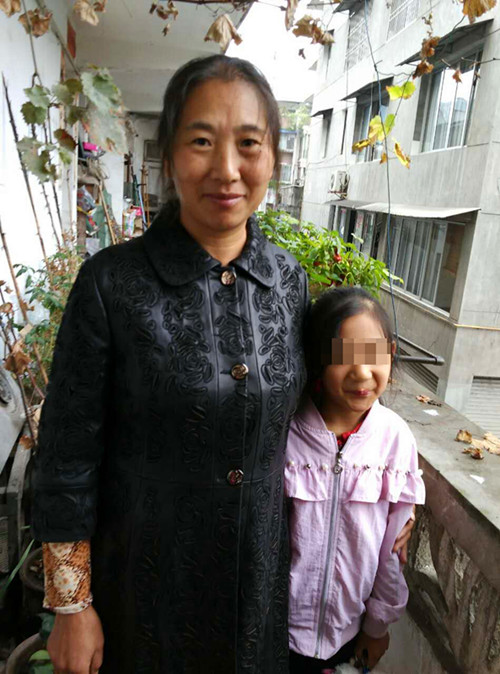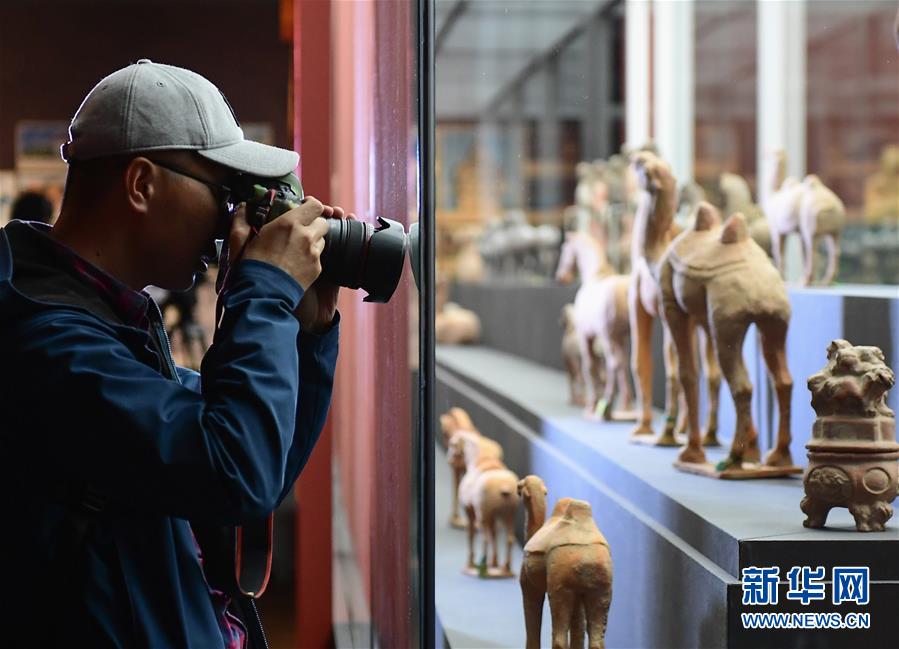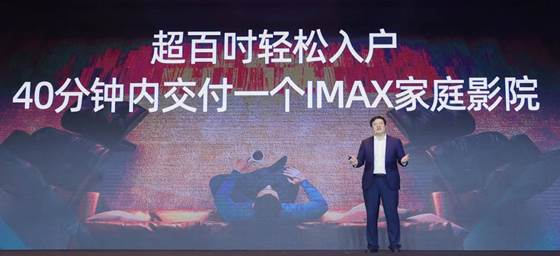Xiao Guangyu from France: Michelin Flavor Is Expecting Authentic Cantonese Ingredients
 Host: Thank you for joining us in the virtual salon of "Overseas Perspective". Would you mind giving us a brief introduction about yourself?
Host: Thank you for joining us in the virtual salon of "Overseas Perspective". Would you mind giving us a brief introduction about yourself?
Guest Xiao Guangyu: Hello, everyone! I'm Xiao Guangyu, the Executive Vice President of the Canton Chamber of Commerce in France. The Canton Chamber of Commerce in France is an independent, non-profit chamber of commerce based in France. It aims to promote economic cooperation and cultural exchanges between France and Guangdong Province in China. We are dedicated to providing an extensive communication platform that enables French enterprises to connect with those in Guangdong and find business opportunities, thereby promoting bilateral investment and trade. The Chamber of Commerce works with French government agencies, the Chinese Embassy in France, and other chambers of commerce and industry organizations to provide local French information, consultation, and support for Guangdong enterprises.

Host: I've heard that the European Union has what we call the "most stringent" food access standards. Is that true?
Guest Xiao Guangyu: The European Union is indeed world-famous for its strict food access standards. These standards are developed and implemented to ensure food safety, quality, and traceability on the European market so as to protect the rights and interests of consumers.
By reaching the food standards of the European Union, enterprises can enjoy a range of potential benefits, including a wider market, higher profits, and longer-lasting benefits. Here, I'll list some key factors and steps to help food enterprises in Guangdong enter the European market. First, get to know the food legislation of the European Union. Enterprises need to gain an in-depth knowledge of the European Union's food legislation and standards first. These include the requirements, food labeling regulations, and food additive legislation of the European Food Safety Authority (EFSA). You can consider hiring professional consultants or a legal team to help you understand the complex legislation. Second, produce food that meets the standards. Make sure your products comply with the food safety and quality standards of the European Union, including the quality of raw materials and the control of the production process. This may require you to improve your production flow or supply chain management. Third, obtain food certifications. You must obtain necessary certifications, such as the Hazard Analysis Critical Control Point (HACCP) and ISO standards. These certifications can prove your products meet the requirements of the European Union. Fourth, pay attention to food labeling and packaging. Make sure your product labels and packaging comply with the legislation of the European Union, including ingredient lists, expiration dates, and nutrition facts. The labels should be correctly used and easy to understand.
To sum up, entering the European market requires patience and time, but if your products meet the standards and satisfy the needs of European consumers, this market will provide substantial opportunities and potential profits. I suggest enterprises actively seek professional guidance and collaborate with local institutions and partners to guarantee their successful entry into the European market.

Host: Taking France, the birthplace of the Michelin star system, as an example, where do Western cuisine and Eastern ingredients and culinary methods perfectly converge? How can people from the East and the West who "love to eat the most and know the best what to eat" work together to promote communication through food?
Guest Xiao Guangyu: We can find a conjunction between Western cuisine and Eastern ingredients and culinary methods in many aspects and create exciting food experiences. For example, in terms of cooking techniques, Western cooking techniques emphasize methods such as simmering, gratin, steaming, and baking, while Eastern ones are good at sautéing, boiling, steaming, and pan-frying. A combination of these techniques can create novel culinary methods. In terms of seasoning, both the West and the East have unique condiments and spices, such as white wine, cream, and olive oil in France, and soy sauce, ginger, and five-spice powder in the East. We can create layers of flavor by blending these condiments together. To combine Eastern and Western gastronomic cultures, I think we can merge their cooking techniques, hold food exchange events, or explore partnership and "co-branding" between restaurants. These positive exchanges can create exciting gourmet experiences and promote cross-cultural communication.
 France's love for food is mainly manifested in the following aspects. Chinese enterprises should learn from these features. Respect for ingredients: French chefs stress the use of fresh, high-quality ingredients and pay attention to the original taste of ingredients. This respectful attitude to ingredients is important in any gastronomic culture. Cooking techniques: France is well-known for its cooking techniques that include a variety of complicated processes, such as sauce making, pastry making, and braising skills. Chinese enterprises can learn from these techniques to improve their cooking skills. Table culture: Dining in France is an enjoyment. It underlines the experience of having dinner with family and friends. In China, products can be designed to encourage people to better enjoy the process of dining and build closer social relationships. Tasting sessions and visits are also feasible, as they can promote exchanges and cooperation between Chinese and French gastronomic cultures. These activities can attract catering practitioners, food lovers, and culture enthusiasts to jointly explore innovative culinary philosophies, promote cross-cultural communication, and provide opportunities for the integration of Chinese and French cuisine.
France's love for food is mainly manifested in the following aspects. Chinese enterprises should learn from these features. Respect for ingredients: French chefs stress the use of fresh, high-quality ingredients and pay attention to the original taste of ingredients. This respectful attitude to ingredients is important in any gastronomic culture. Cooking techniques: France is well-known for its cooking techniques that include a variety of complicated processes, such as sauce making, pastry making, and braising skills. Chinese enterprises can learn from these techniques to improve their cooking skills. Table culture: Dining in France is an enjoyment. It underlines the experience of having dinner with family and friends. In China, products can be designed to encourage people to better enjoy the process of dining and build closer social relationships. Tasting sessions and visits are also feasible, as they can promote exchanges and cooperation between Chinese and French gastronomic cultures. These activities can attract catering practitioners, food lovers, and culture enthusiasts to jointly explore innovative culinary philosophies, promote cross-cultural communication, and provide opportunities for the integration of Chinese and French cuisine.

Host: What's the difference between food as a form of communication and other pillar industries in France, such as industrials, fashion, beauty, and other sectors? From the perspective of related trade promotion you are engaged in, what do you think we can learn?
Guest Xiao Guangyu: There are three major differences between food as a form of communication and other sectors such as industrials, fashion, and beauty. First, legislation and standards: Usually, stricter regulatory and standard constraints are imposed on the food industry because food safety is crucial to consumer health. It means more compliance and oversight are required when it comes to food trade. Second, supply chain and shelf life: The supply chain management and shelf life control of food are of paramount importance to food trade. For fashion, beauty, and other commodities, supply chain management is relatively flexible, while food requires higher stability and traceability. Third, market treatment: Food in an international market is usually more affected by the local culture and taste, so when it enters different international markets, factors in adapting to local tastes and cultures need to be considered.
 From the food industry, we can mainly learn from the following aspects. Brand building: Be it food, fashion, or beauty, brand building and marketing are vital to international trade. Creating a unique brand image can help an enterprise stand out in international markets. Cross-cultural understanding: It's very important for every industry to learn about the consumer needs and trends in different cultures. In international trade, taking into account the differences between different cultures can help enterprises better satisfy market demands. Quality and innovation: Quality and innovation are the key factors behind success, be it food, fashion, or beauty. By providing high-quality products and continuously innovating, enterprises can stay competitive in international markets. Trade promotion activities: Trade promotion activities, such as expositions, exhibitions, and business visits, are effective promotion and communication channels for all industries. Enterprises can establish connections and showcase their products through these activities. Cooperation and alliance: Cross-industry cooperation and alliance can provide enterprises with wider markets and resources. For example, a fashion brand can collaborate with a beauty brand to jointly launch cross-sector products. Digitalization and e-commerce: The development of digitalization and e-commerce benefits all industries. It makes international trade more convenient. Business can be expanded through online sale and marketing.
From the food industry, we can mainly learn from the following aspects. Brand building: Be it food, fashion, or beauty, brand building and marketing are vital to international trade. Creating a unique brand image can help an enterprise stand out in international markets. Cross-cultural understanding: It's very important for every industry to learn about the consumer needs and trends in different cultures. In international trade, taking into account the differences between different cultures can help enterprises better satisfy market demands. Quality and innovation: Quality and innovation are the key factors behind success, be it food, fashion, or beauty. By providing high-quality products and continuously innovating, enterprises can stay competitive in international markets. Trade promotion activities: Trade promotion activities, such as expositions, exhibitions, and business visits, are effective promotion and communication channels for all industries. Enterprises can establish connections and showcase their products through these activities. Cooperation and alliance: Cross-industry cooperation and alliance can provide enterprises with wider markets and resources. For example, a fashion brand can collaborate with a beauty brand to jointly launch cross-sector products. Digitalization and e-commerce: The development of digitalization and e-commerce benefits all industries. It makes international trade more convenient. Business can be expanded through online sale and marketing.
In short, although different industries have some unique challenges and characteristics, the core principles of international trade promotion apply across the board. Enterprises can draw inspiration from successful experiences in other industries and adjust their strategies according to their own circumstances to succeed in international markets. In the meantime, it's also critical to learn about and comply with relevant legislation and standards in the industries.

Host: What suggestions do you have for Chinese (Guangdong) agricultural enterprises' international expansion? What support can you provide for them?
Guest Xiao Guangyu: Europe is a potential market for Guangdong to export its agricultural products. Yet, some challenges await. Here are some suggestions and support we can offer. First, market research. Before an enterprise marches into the European market, thorough market research is the key. This means learning about the consumption habits, needs, and market scales of different European countries to identify the most potential target markets. Second, compliance and certifications. We can acquaint manufacturers with European food safety legislation and standards in advance to ensure agricultural products from Guangdong meet these requirements. Some certifications may be needed to prove the safety and quality of the products, such as HACCP and ISO 22000. Third, marketing and brand building. We can assist with marketing activities, brand awareness building, and brand image building to attract European consumers. Fourth, trading partners and distribution channels. We can find suitable trading partners and distribution channels. Enterprises may need to cooperate with local dealers or partners to better enter the European market.
 In Europe, in addition to strict food safety requirements and quality standards, local market competition must be paid attention to. As competition is fierce in the European market, measures that can be taken to compete with other agricultural product suppliers, including pricing strategies and market positioning, deserve consideration. Setting up an entire production line in Europe is a complex decision that requires careful consideration of the following factors. Cost and investment: High cost and investment, including factory building, equipment purchase, and employee training, may be involved in the relocation of a production line. The return on investment and feasibility need to be assessed. Legal and regulatory requirements: The legal and regulatory environment in Europe may be different from that in China. It's necessary to learn about and comply with local legislation and standards. Supply chain management: After relocation, a new supply chain needs to be established, including the supply and logistics of raw materials. It's critical to ensure the efficiency and stability of the supply chain.
In Europe, in addition to strict food safety requirements and quality standards, local market competition must be paid attention to. As competition is fierce in the European market, measures that can be taken to compete with other agricultural product suppliers, including pricing strategies and market positioning, deserve consideration. Setting up an entire production line in Europe is a complex decision that requires careful consideration of the following factors. Cost and investment: High cost and investment, including factory building, equipment purchase, and employee training, may be involved in the relocation of a production line. The return on investment and feasibility need to be assessed. Legal and regulatory requirements: The legal and regulatory environment in Europe may be different from that in China. It's necessary to learn about and comply with local legislation and standards. Supply chain management: After relocation, a new supply chain needs to be established, including the supply and logistics of raw materials. It's critical to ensure the efficiency and stability of the supply chain.
In summary, entering the European market requires adequate preparation and compliance, whether through export or relocation of production lines. The choice of suitable market research and partners is the key to success. Most importantly, a long-term strategic plan is needed to ensure the requirements and demands of the European market are continuously met.

Host: Regarding the topic of today's discussion, what other points would you like to share with enterprises that are willing to enter the European market?
Guest Xiao Guangyu: I think the local market trends and consumer preferences in France are worth mentioning. In addition to commonalities such as food safety, brand, and quality, Chinese consumers tend to pursue cost efficiency and food convenience. They generally believe imported food has better quality. In comparison, French people pursue healthy and natural food, as well as food sustainability. Commodities with Bio-labels are preferred in France. Consumers are increasingly concerned about the methods of food production, the sources of raw materials, and the impact on the environment and animal welfare. Meanwhile, French people value local food and regional characteristics more. There are many products with local characteristics on the French food market, such as cheese, wine, and dairy products. These foods with geographical indications (AOP and IGP) are usually related to specific geographical areas and traditions. French people believe this helps preserve the regional identity and traditions. These products also enjoy great popularity in the domestic and international markets.
【Host】 Bao Rui
【Source】 World Rural Affairs section of Southern Rural Post
相关文章
 我的苹果手机不见了怎么办我的苹果手机不见了怎么找回)2022-05-31 12:03:13诸葛成朗。我的苹果手机不见了怎么办,我的苹果手机不见了怎么找回这个很多人还不知道,现在让我们一起来看看吧!解答2024-09-20
我的苹果手机不见了怎么办我的苹果手机不见了怎么找回)2022-05-31 12:03:13诸葛成朗。我的苹果手机不见了怎么办,我的苹果手机不见了怎么找回这个很多人还不知道,现在让我们一起来看看吧!解答2024-09-20 超越血缘关系的母爱,更伟大感人。“雅安好人”王树芬用自己的博大母爱,撑起了一个孩子的人生。她的大爱,已在她孩子身上得到延续;她的精神,则在不断感动着每一个人。这就是道德种子的力量——它破土而出,迸发出2024-09-20
超越血缘关系的母爱,更伟大感人。“雅安好人”王树芬用自己的博大母爱,撑起了一个孩子的人生。她的大爱,已在她孩子身上得到延续;她的精神,则在不断感动着每一个人。这就是道德种子的力量——它破土而出,迸发出2024-09-20 “粤”味浓郁!广东农产品集中亮屏全国核心高铁机场→_南方+_南方plus礼遇天下食客,开启秋日之约。近日,广东特色农产品刷屏广州、新疆、上海等地高铁站、机场等广告屏,吸引了不少往来旅客驻足。这一波亮相2024-09-20
“粤”味浓郁!广东农产品集中亮屏全国核心高铁机场→_南方+_南方plus礼遇天下食客,开启秋日之约。近日,广东特色农产品刷屏广州、新疆、上海等地高铁站、机场等广告屏,吸引了不少往来旅客驻足。这一波亮相2024-09-20 雅安日报/北纬网讯18日,团中央书记处书记徐晓率调研组一行到雅安开展调研工作。调研组先后来到雅安市群团组织社会服务中心、芦山县龙门乡红星村,调研我市共青团协同社会力量围绕中心、服务大局和本土社会组织团2024-09-20
雅安日报/北纬网讯18日,团中央书记处书记徐晓率调研组一行到雅安开展调研工作。调研组先后来到雅安市群团组织社会服务中心、芦山县龙门乡红星村,调研我市共青团协同社会力量围绕中心、服务大局和本土社会组织团2024-09-20 9月19日,海信发布全球首款120吋可折叠激光电视L5K,创造性地以“折叠入户”的全新解决方案,让超百吋大屏轻松入户。相比传统超大屏电视入户安装动辄两三小时,甚至需要动用吊车或2024-09-20
9月19日,海信发布全球首款120吋可折叠激光电视L5K,创造性地以“折叠入户”的全新解决方案,让超百吋大屏轻松入户。相比传统超大屏电视入户安装动辄两三小时,甚至需要动用吊车或2024-09-20 连州菜心“两项标准”是什么,一文告诉你_南方+_南方plus霜降在即,连州菜心迎来了新一年播种季,丰沃的土地上密布着点点嫩绿,预示着即将到来的丰收。与往年不同的是,今年连州菜心播种生产新增两部“宝典”2024-09-20
连州菜心“两项标准”是什么,一文告诉你_南方+_南方plus霜降在即,连州菜心迎来了新一年播种季,丰沃的土地上密布着点点嫩绿,预示着即将到来的丰收。与往年不同的是,今年连州菜心播种生产新增两部“宝典”2024-09-20

最新评论